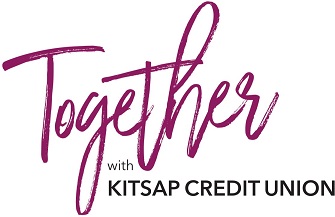Just like you, we are always looking for ways to keep ourselves and our family busy and active as we adjust to the new normal of “Stay home. Stay healthy”. Every day we are giving you a list of 14 things to keep us sharp, in shape, stimulated, busy, or entertained during these unprecedented times. Do one a day for 14 days, or tackle the entire list at once. Just make sure to check back every day for something new.
Today is National Teach Children to Save day. Financial management is a key life skill that can be taught early. Today, we’d like to show you 14 ways to teach your child to save.
- Start early – even if your child is young, start the conversation early. Once your child understands the concept of money, that is the time to start the conversation.
- Start with a Piggy Bank – Start simple by encouraging your kids to save their money in a piggy bank. Then they can enjoy watching their money grow.
- Make Your Own Piggy Bank – Get your kids engaged in the process by helping them create their own piggy bank. They can choose their decorations and make it their own.
- Discuss the Difference Between a Want and a Need – This basic understanding of how to prioritize spending is a steppingstone towards healthy financial habits.
- Help Them Earn Money – Whether they earn through household chores, yard work, or good grades, give your kids the opportunity to make their own money through hard work.
- Keep Track of Spending – If your child chooses to spend their money, help them keep a running tally. At the end of the month, show them how much they’ve spent. They may rethink their spending next time.
- Open a Savings Account – Once your kids graduate from the standard piggy bank, take them down to your local credit union and help them open a savings account.
- Consider Matching Their Deposits – Encourage your kids to save rather than spend by matching their deposits. Why spend $10 when you can save $20?
- It’s a Money Thing – Kitsap Credit Union offers a variety of educational videos called It’s a Money Thing available for free on our website. These videos are a great starting place to answer some basic financial questions in an engaging way.
- Be Their Safety Net – If something unforeseen happens, such as if their money is stolen or lost, consider helping them replace the money so they’re not discouraged away from saving.
- Offer Them Credit – Encourage saving by offering your child credit when their savings are a bit short. Consider a small loan and help them develop a plan to pay you back as they earn more. Not only will this help them save, but it can teach them good credit habits for the future.
- Open a Youth Checking Account – Once your child becomes a teenager, consider opening a youth checking account. You will be able to monitor their spending so you can provide guidance while they’re still learning.
- Talk About Your Money – Talk through your spending decisions as you make them. If you decide to buy something, tell them why this expense is worth it. If you decide something is unnecessary, talk about that too. Hearing about your money management skills will teach them how to make their own decisions.
- Be a Good Example – Children are greatly influenced by their parents. If they see you prioritize savings, they will learn the importance too.
 We know things are stressful right now, and you may be worried about your finances. We have solutions available through our Member Assistance Program, designed to support you. We have a range of resources, such as an Emergency Loan Program, Skip-a-Pay, and our Visa Credit Card special, that can help those who have been impacted.
We know things are stressful right now, and you may be worried about your finances. We have solutions available through our Member Assistance Program, designed to support you. We have a range of resources, such as an Emergency Loan Program, Skip-a-Pay, and our Visa Credit Card special, that can help those who have been impacted.






